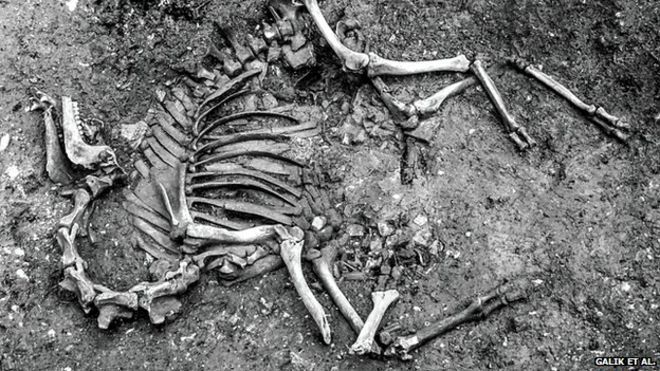
The 300-year-old skeleton of a camel used by the Ottomans to invade Vienna has been identified by Austrian researchers after its discovery in a refuse pit.
The complete, preserved skeleton was rescued from an abandoned pit in Tulln, a Lower Austrian town on the banks of the Danube in 2006, prior to the construction of a shopping centre.
Researchers believe that the male camel was used as a riding animal during the 17th-century Osmanic-Habsburg wars, when the Ottoman empire sought to expand throughout central Europe. The animal may have died during the Siege of Vienna in 1683.
The findings were published yesterday by scientists from the University of Veterinary Medicine in Vienna in scientific journal PLOS One.
The finding is unique in being the first complete camel skeleton to be discovered in central Europe. Isolated camel bones have previously been located in Serbia and Belgium.
Genetic analyses also show that the creature was a hybrid, with maternal DNA from a dromedary (also known as the Arabian or Indian camel) and paternal genes from a Bactrian camel. Today, dromedaries are found across North Africa, western Asia and Australia, while Bactrian camels inhabit central Asia and the far east. The camel had also been castrated.
Archaeozoologist Alfred Galik identified the animal as a camel after initial speculation that it could have been a large horse or cow.
"The animal was certainly exotic for the people of Tulln. They probably didn't know what to feed it or whether one could eat it," said Galik.
Since the entire skeleton was preserved, Galik said the camel could have been traded as part of an exchange rather than being killed for food.
The Ottoman empire emerged in the 14th century and peaked under Suleiman the Magnificent in the sixteenth century. The empire twice failed to take Vienna, the second time in 1683. It was effectively extinguished in the aftermath of the first world war.
Uncommon Knowledge
Newsweek is committed to challenging conventional wisdom and finding connections in the search for common ground.
Newsweek is committed to challenging conventional wisdom and finding connections in the search for common ground.
About the writer
Conor is a staff writer for Newsweek covering Africa, with a focus on Nigeria, security and conflict.
To read how Newsweek uses AI as a newsroom tool, Click here.








